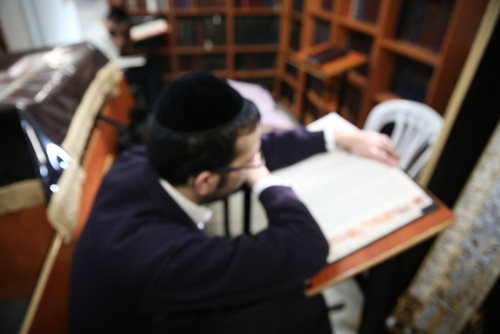Ask the Rabbi with Rabbi Chaim Mintz
I have recently heard people speaking about seeking a pressure-free environment, where they can just take it easy. Is such a sentiment in line with being a Torah Jew, who must always feel the yoke of Torah and mitzvot? And what about when I am on vacation, can I just relax and chill, sleep late, and daven at the latest minyan?
Rabbi Chaim Mintz responds:
Pressure is Important
Pressure is a very important part of life – not only for a Jew, who must always follow the Torah, but for anyone who wishes to lead a productive and successful life. Responsibility brings pressure, and the more responsibilities a person has the more successful he will be. Without pressure, there is very little driving us to do what we are supposed to do, and most people would become laid back and unmotivated, leaving them feeling empty and discontent. So it is pressure that provides a person with the drive to perform and succeed, and is the force behind humanity doing the right things at the right time, leading a person to a feeling of contentment.
Striking a Balance
However, it is important not to overdo it, as too much pressure can be detrimental to a person’s health and wellbeing, as well as hinder his ability to grow. People who have too much pressure in their lives – such as feeling pressured 24 hours a day or doing things that are too difficult – may become overwhelmed, nervous, and irritable, causing them to not function properly and be unproductive. So, like most things in life, a person must find the right balance – feeling a level of pressure that will make him achieve and accomplish, but not too much pressure that will hamper his growth.
Vacation: A Balance of Relaxation and Duties
Vacations and breaks are important, as they help relieve the pressures of everyday life, affording people the opportunity to rest up and recharge their batteries. One should certainly swim, play ball, and do other enjoyable, relaxing activities, as well as get more sleep if needed. But that does not mean that during vacation a person is off duty. Every Jewish male must study Torah every day of his life, so it is imperative to have a set time for learning both in the morning and at night. How much time would depend on each individual, and it would be best to speak it over with your rebbi or mentor.
Davening Later
As far as davening (praying) a little later, I would say it is ok during vacation, as long as you do so within the proper time frame. One must certainly daven Shemoneh Esrei before sof zman tefillah – the latest time for reciting Shemoneh Esrei (the Amidah prayer). And it is preferable to daven before sof zman krias shema – the latest time for reciting Shema – thereby enabling a person to recite Shema with its accompanying brachot (blessings) in the proper time. But if he will not make that time, he must make sure to recite Shema before davening.
In general, a person should not daven too late even when on vacation – I would say no later than 9 o’clock – except for extenuating circumstances, such as when one was up very late for a wedding or cleaning the house for Pesach (Passover). Firstly, this will often be after sof zman krias shema. In addition, getting into a routine of going to sleep late and waking up late will make it difficult for a person to get back on track when he returns to his regular schedule.
In short: Living pressure-free is wrong. A person must have pressure – but not too much of it – in order to succeed in life. While on vacation, you should have a set time for learning both in the morning and at night. You can daven at a later minyan if it’s within the proper time frame, but not later than 9 o’clock.
The above article is based on the following live sessions with Rabbi Chaim Mintz:
Have another question to ask a rabbi? You can ask Rabbi Mintz your own question at asktherabbi@oorah.org, or head to oorah.org/asktherabbi/ to watch the latest Q&As or join Ask the Rabbi Live, Tuesdays at 9PM ET.


